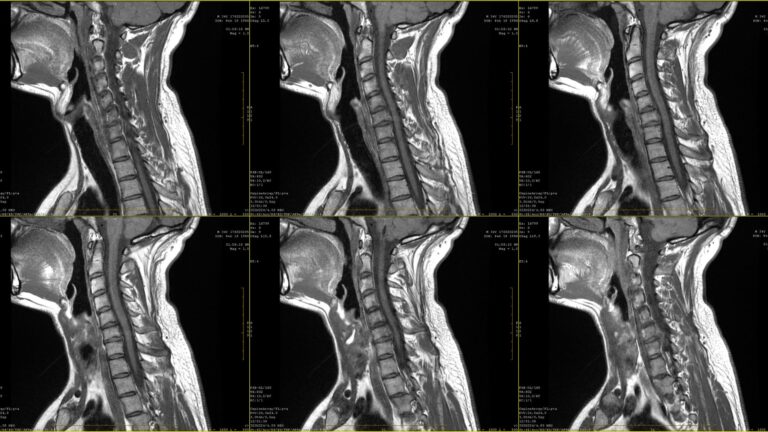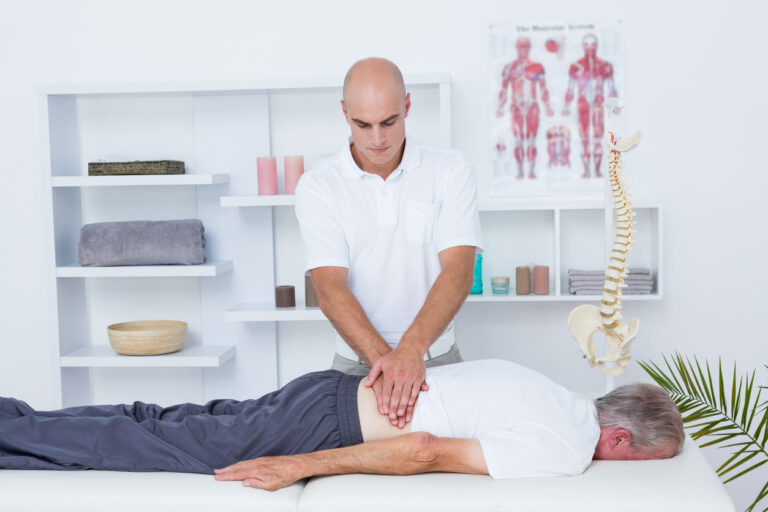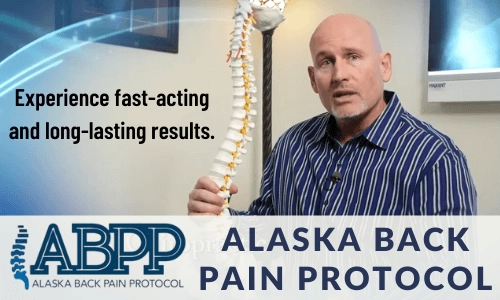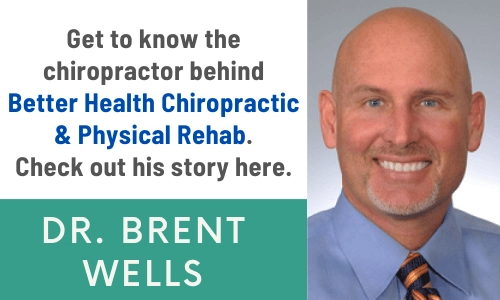If you are reading this article, it’s probably because you are experiencing some type of pain in your hips and you wonder if a chiropractor can help.
We know you probably have a lot of questions about this as well, such as:
- What will a chiropractor do for hip pain?
- How do you know if you need a chiropractic adjustment?
- How do chiropractors pop your hip?
- Do misaligned hips cause sciatica?
- What are the risks of chiropractic hip adjustments?
- Why do I feel hip pain after an adjustment?
- Aren’t chiropractors good at cracking backs and nothing else?
Chiropractic adjustments for hip pain are more common than you might think, it just doesn’t get the same amount of attention that low back or neck adjustments do.
Hip Function and Hip Pain
We don’t give our hips much attention until they start to cause us pain. When you think about the numerous functions they provide, it’s no wonder they can cause tremendous pain when they are out of alignment.
Hips keep us upright, they bear our weight and allow us to walk smoothly, kick, run, jump, and sit. Our hips are involved in nearly everything we do, so when they hurt, it can be debilitating.
Common causes of hip pain include:
- Inflammation
- Osteoarthritis
- Inflammatory bowel disease
- Rheumatoid arthritis
- Overuse
- Injuries
- Trauma
- Pinched nerves
- Bursitis
Occasionally, what people describe as hip pain is due to a different part of the body causing problems. The same way that ill-fitting shoes might cause blisters on the heel. The problem isn’t really with the heel, but with the shoe.
How do you know if you need a hip adjustment? If you are experiencing hip pain, your chiropractor will be the best person to tell you whether you would benefit from an adjustment or if the source of your hip pain is from another source. If that is the case, the doctor will recommend a qualified chiropractor that can treat your issue.
One of the most common types of hip pain people refer to is actually from a hernia or sciatica. This is where the holistic nature of chiropractic care is so valued; they won’t treat just your symptoms but look for the root cause of your pain.
Depending on the source of your hip pain, chiropractic adjustments could help relieve your pain.
5 Things No One Tells You About Chiropractic Hip Adjustment
The more you know about your hips and hip pain, the more power you have to recognize when you need to seek out the professional treatment that a chiropractor can provide.
What are the first signs of hip problems? Let’s look at some of the most common things about hip pain almost no one talks about.
#1 – A Chiropractor Can Help Your Hip Pain

Regular comprehensive chiropractic care can help prevent and relieve hip pain, as well as spotting little problems before they become big ones. You might be worrying if an adjustment hurts and the answer is “No, it doesn’t!”
Chiropractic care is effective when it comes to stopping the hip pain you feel from sciatica. A study done in 2012 found that almost two-thirds of subjects who received regular chiropractic care are able to avoid surgery.
If your hip pain is from trauma or overuse, chiropractic care can help you to heal faster and reduce inflammation.
Even if you suffer from osteoarthritis, which is one of the most common causes of hip pain, chiropractic care can help. While there is no cure for osteoarthritis, chiropractic care can slow the progression of the disease while minimizing pain symptoms. A 2010 study found that four out of 5 patients who had osteoarthritis had significantly fewer symptoms after just 9 chiropractic sessions.
Depending on the root cause, your chiropractor might employ the use of other physical therapy modalities, such as:
- Chiropractic massage
- Ultrasound
- Cold laser
- Heat therapy
- TENS device
- Focused exercises
- Rehabilitation therapy
After taking your medical history and performing a thorough exam, which will most likely include imaging, such as x-rays, your chiropractor will create a treatment plan designed specifically for you and your exact needs. After your treatment plan has ended, the chiropractor will offer you a check-up plan that will help to keep you healthy and keep your back, hips, and other joints in proper alignment to avoid any future problems.
Perhaps one of the biggest and best things about regular chiropractic care is that it improves posture, boosts the immune system, and even lowers your risk of depression.
Keep in mind that not every adjustment technique is right for everyone. Chiropractic is not a “one size fits all” type of treatment, so if you receive a different type of adjustment than a friend, remember that everyone is unique.
#2 – Hip Pain After Chiropractic Adjustment?
It’s normal to feel hip pain after a chiropractic adjustment, although not everyone does. This is typically a soreness of the muscles or the joint. It usually begins within a few hours after the adjustment and lasts for 24 to 48 hours.
You can think of it as the soreness that comes after a workout. In that case, the muscles are sore because they’ve been strained and are building back up to become stronger. Hip pain after a chiropractic adjustment is similar in that the pain you experience is a sign that the body is adjusting to its proper alignment after being misaligned for some time. Learn from my other blog post on how you can realign your hips.
An ice pack on the area for no more than 20 minutes can help with the pain. Your chiropractor may also recommend stretches that may help. If not, talk to him or her about ways to help prevent or lessen soreness in the future.
Adverse effects from spinal adjustments, other than soreness and minor aches, are extremely rare. I have written a blog post containing tips about the things you can do after a chiropractic adjustment. But, unfortunately, the old maxim, “No pain, no gain,” holds true here. Some people will experience mild soreness following an adjustment, but the benefits certainly outweigh the temporary discomfort in the vast majority of cases.
#3 – Chiropractor Hip Adjustment Risks
The chiropractic adjustment for hips is conservative, non-invasive treatment with rare adverse effects. Most doctors recommend trying any and all conservative treatments before considering hip surgery. This is because surgery is always a risk and the recovery time for such an operation is a cause for concern. However, that doesn’t mean that chiropractic hip adjustments are risk-free.
The most common type of hip adjustment risk is soreness and discomfort of the joint. This typically lasts a day or two and starts a few hours after the adjustment. But, not everyone experiences hip pain after a chiropractic adjustment. In fact, some people feel just the opposite; elation and a release from pain. Everyone’s body is different and as such, everyone reacts differently to an adjustment.
Some people may experience headaches, dizziness, and nausea after a chiropractic adjustment. Again, these issues often go away quickly and are no cause for concern. If you do experience any unpleasant side effects or are concerned about the risks of a hip adjustment, talk to your doctor of chiropractic or your general practitioner.
Despite what you have heard in the media, hip, back, and neck adjustments are perfectly safe.
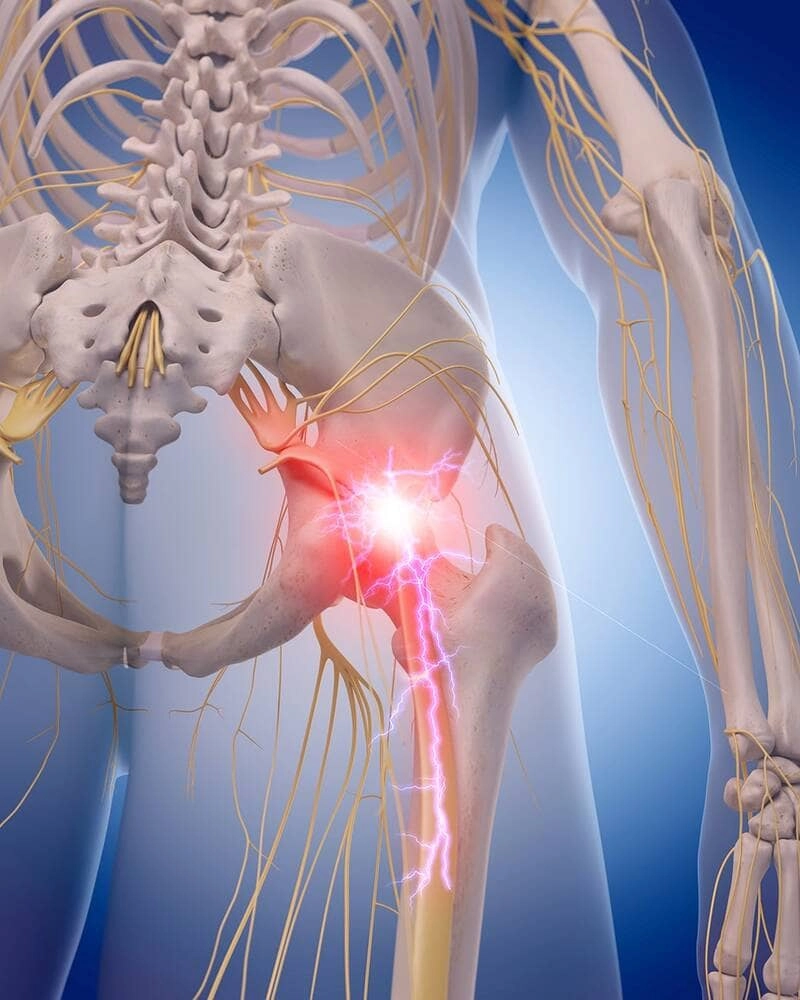
#4 – What to Expect When You See a Chiropractor for Hip Pain?
When you make an appointment with a chiropractor, be certain to bring any medical records or imaging related to your hip pain if you have any. The chiropractor might want to order more tests, depending on your situation.
After gathering all your information and doing a complete physical exam, the chiropractor will tell you about the treatment plan they intend to use to treat your pain and the root cause, if possible.
You should expect the chiropractor to do some adjustments and most likely a chiropractic massage during your first appointment. Other modalities, such as ultrasound, will depend on your circumstances.
How often should you go to the chiropractor? That will depend on the root cause of your pain. Your chiropractor will determine how often you should be adjusted and will set up a schedule for you.
If this is your first time being adjusted by a chiropractor, you might experience some mild, minor side effects for the first 24-48 hours. This article explains these side effects in detail.
Be certain to complete the treatment plan the chiropractor sets up for you. Your hip pain was mostly weeks or even years in the making, so it will need time to resolve itself and allow the body time to heal.
#5 – What Causes My Hip Pain?
a) Being Overweight
We aren’t into fat-shaming, but the fact remains that for some people, hip pain is caused by being overweight. Often times, losing just 5% of your body weight can help to stop hip pain.
Your chiropractor can help you in this area. They can offer valuable nutritional advice and a reasonable exercise program that can help you to drop a few pounds without putting additional stress on the hips, knees, or feet.
A chiropractor is a true health care professional who isn’t here to judge you, but to help stop hip pain and give you the pain-free life you deserve.
b) Sciatica
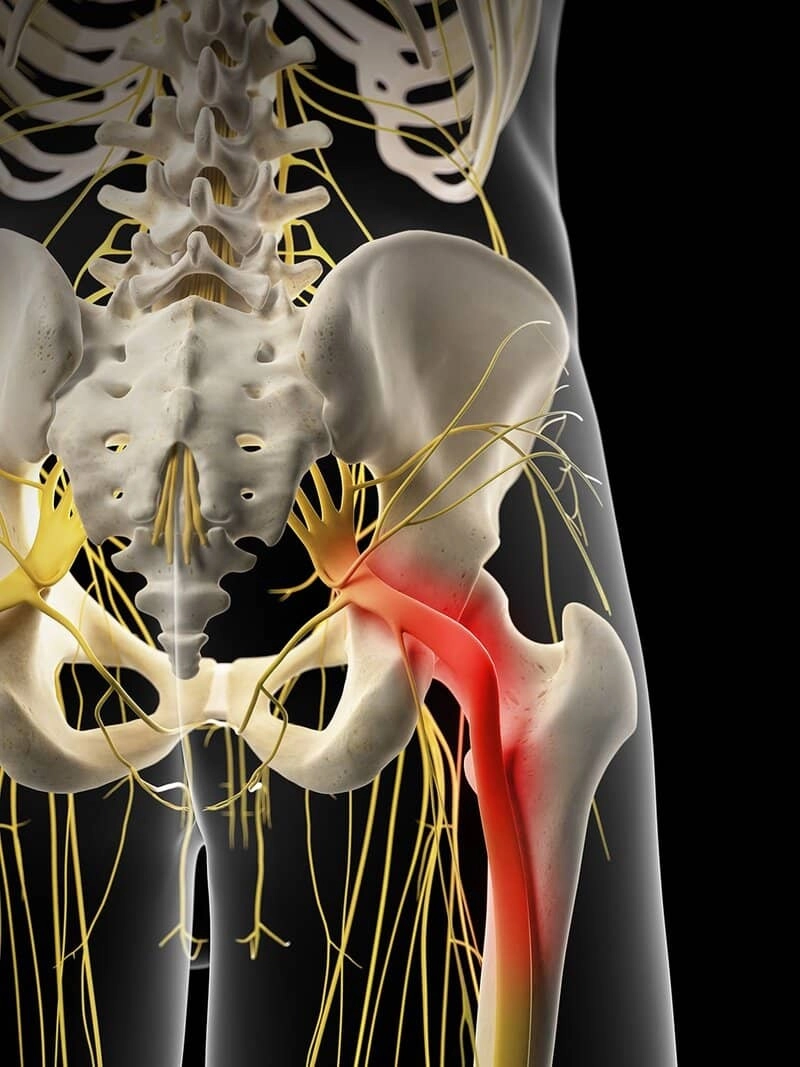
While many people think that sciatica is for “old folks” the truth is that sciatica happens, and it happens to a lot of people between the ages of 30 and 50!
If your pain originates in the hip itself and includes pain on the inner thigh or the front of the thigh or even the groin area, chances are that your problem is in the hip.
However, if the pain starts in the lower back and moves down the hip to the back of the thigh or even as far down as your foot, chances are that it’s not your hip causing you pain, but sciatica.
A chiropractor will be of tremendous benefit here, discovering exactly where your pain originates and what the root cause is. The good news is that regardless of whether you are suffering from true hip pain or sciatica, your chiropractor can successfully treat both.
Here’s a guide to help you with your sciatica pain: 9 Secrets for Getting Rid of Sciatica Pain.
c) Inflammation
While inflammation is a natural immune response, chronic inflammation is a problem. It causes pain and can lead to long-term health problems.
You can greatly reduce inflammation by speaking to your chiropractor about following an anti-inflammatory diet, removing inflammation-causing foods from your life, and adding herbal anti-inflammatory supplements.
Some of the best anti-inflammatory supplements include magnesium, green tea extract, fish oil, and curcumin. Be sure to speak with your doctor, chiropractor, or pharmacist about all the medications you are taking before consuming any supplements to avoid an unwanted drug interaction.
d) Overuse
Depending on your hobby or profession, physically active people, such as dancers or athletes, tend to have more hip pain than the seat behind the desk crowd. Why? Because the hip joint and surrounding muscles (including connective tissues) become inflamed and irritated from overuse.
While it’s true that the body is designed to move every day, it wasn’t necessarily designed to do strenuous tasks all day, every day. Excessive wear and tear on joints have been linked to a higher risk of arthritis. To avoid this, you should work with your chiropractor to limit inflammation through supplements and a healthy diet, get regular adjustments and relax with chiropractic massage, which can help relieve tension and improve circulation to the affected areas.

Chiropractic Hip Adjustments in Juneau
Whether your hip pain is from overuse, injury, or even osteoarthritis, chiropractic hip adjustments can help. Studies show that regular hip adjustments can relieve pain, improve motion, and slow the progression of degenerative diseases like osteoarthritis. People who thought they wouldn’t ever walk without pain again are often surprised to find themselves active and relatively pain-free after just a few hip adjustments. If you’re having hip problems and you want to live pain-free again, visit Better Health Chiropractic Juneau. Call us at (907) 796-3333.
We hope you found this article helpful and informative. If so, please feel free to share it with others.
We have three chiropractic offices in Alaska to serve you and offer same-day appointments.
Don’t wonder how you are going to manage your pain for one more day! Call today and discover the joy of living a pain-free life once more!





